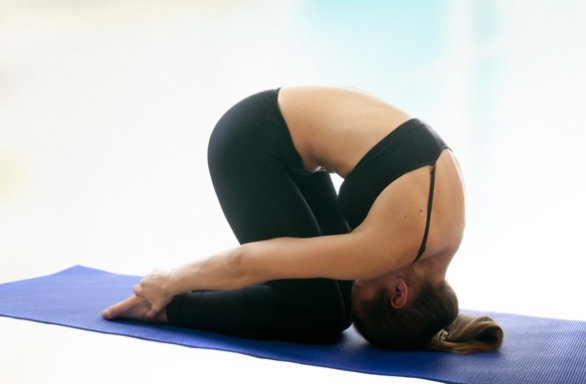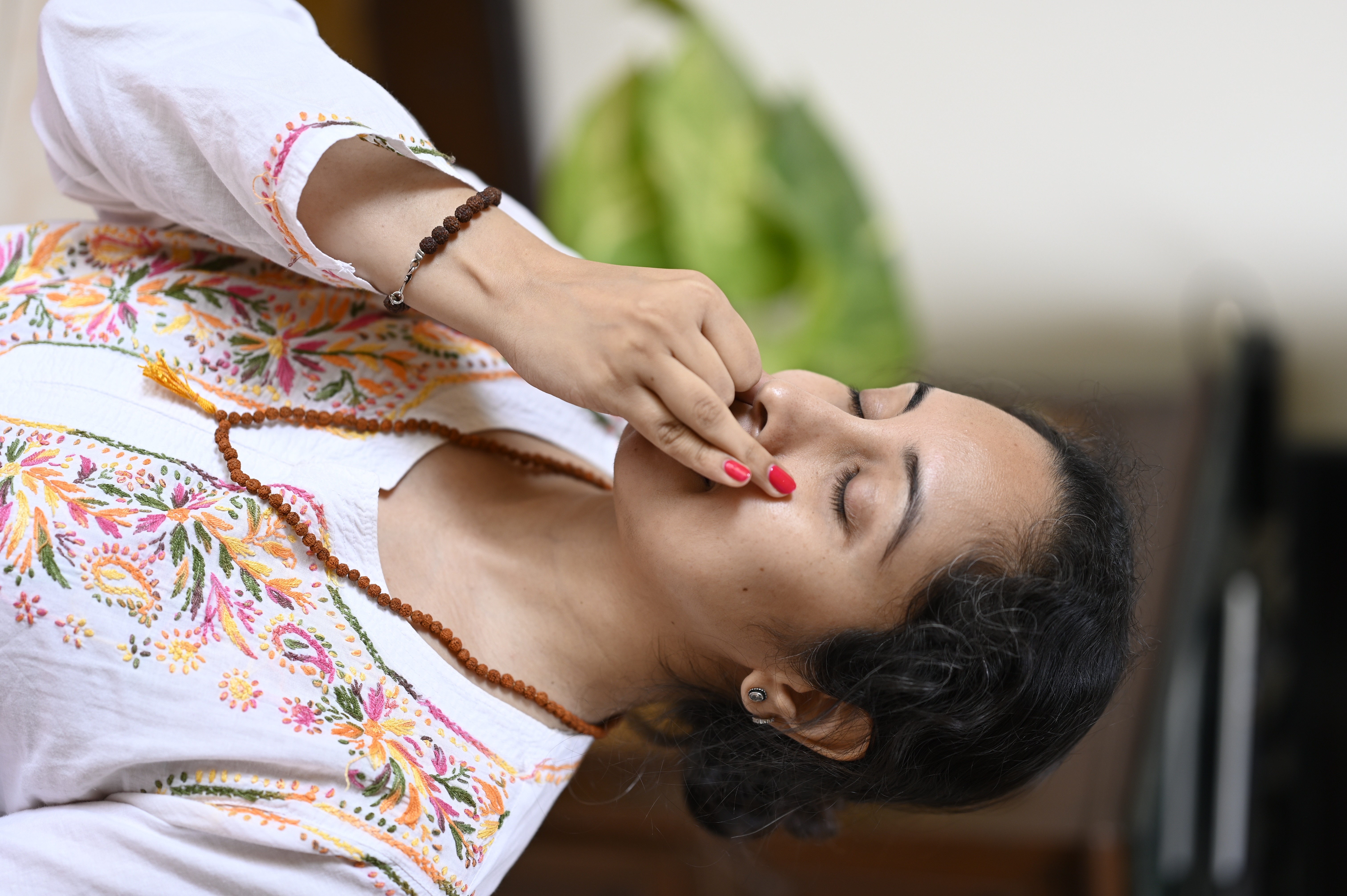

With the quality of our air decreasing due to climate change, continued use of air pollutants, and worldwide wildfires, breathing can be difficult (even harmful if outside) on a good day for people with perfectly healthy lungs.
However, the air quality creates distinct problems for people who suffer from asthma.
If you’ve never felt the constriction of your lungs and bronchi due to bronchitis, pneumonia or asthma, there is almost no feeling worse than the struggle to breathe, to bring oxygen into your body. Something that should be easy can be very difficult for a lot of people.
But particularly for asthmatics.
That’s why I wanted to create a class specifically for them, or anyone else who has breathing issues! My class, Therapeutic Yoga for Asthma and Sinus teaches yogis breathwork that will improve lung function and help them breathe better when breathing is hard.
You can find my class and many more on My Yoga Teacher! If you haven’t signed up yet, you can grab your 2-week free trial here and try mine and 35+ other types of yoga classes. There’s something for everyone!
I want to talk about how yogic breathing helps people breathe better, particularly those suffering with asthma.
For people with asthma, inhaling is not typically the initial problem with their breathing. Expiration is. The act of exhaling.
When an asthma patient inhales and an asthma attack is triggered, the bronchi constrict, making force necessary for exhaling. Normally, expiration is a passive process for our body. The pressure inside the lungs releases similar to poking a hole in a balloon.
Many things can trigger an asthma attack. Cold air, smoke, foreign particles in the air, pollen, stress, even strong odors or chemical smells.
Various types of yogic breathing help asthma sufferers reduce stress that so often trigger an attack, but also teaches them how to control their breathing, particularly their exhalation. Studies have even shown that different forms of chanting with exhalation are also effective in helping asthmatics breathe better.
All forms of yoga incorporate breathwork. That’s because yoga is an all-encompassing practice of bringing harmony to your inner and outer world. Part of that process is how we bring oxygen and nutrients to all parts of our body.
Breathing is life.
In yoga, breath is referred to as pranayama, and there are lots of different types. Here are some that studies have shown to be effective in helping treat asthma symptoms.
In patients with mild-to-moderate asthma, this form of breath work is beneficial.
To perform this type of breath, you’ll begin in Thunderbolt Pose, simply sitting on your knees, glutes resting on bottoms of your feet or calves. If this is uncomfortable due to knee issues, you can place a block, blanket, or bolster between your calves and glutes for support.
While inhaling, raise both arms up, palms facing out. Arch backwards gently.
When you exhale, bring arms down to the ground, reaching back towards your feet/heels, lifting your body up off your support or calves and bend over so the crown of your head (or forehead) is facing the floor, or touching it (see image below).
There are several variations of this form of breathing, but this is the simplest and easiest to do when an asthma attack occurs.

Often thought of as the antidote to stress, this form of breath work does take some practice and effort, but has also been shown to be an effective form of breathing for asthma sufferers.
Besides creating an almost immediate sense of calm and serenity, which helps panicky asthma sufferers, this type of breathing also:
Here are the steps to perform this type of breathing exercise. You may not be able to do more than a few rounds of this form of breath work in the beginning, but keep practicing! It does get easier the more you do it. And the more you practice, the more you benefit from it.

Bhramari means the “Goddess of Bees.” Ironically, bees are huge bringers of life to our world! Which makes this practice even sweeter!
Also known as Bumblebee Breath, Bhramari pranayama is a particularly calming form of breath that also includes a buzzing sound (made by you, of course). It also is a way to instantly rid yourself of anxiety, stress, or agitation.
While making a high pitched buzzing sound upon exhalation may seem strange to you, it is very effective. Bumblebee Breath is focused on forced expiration, which is why we advise it specifically for asthma patients.
I highly recommend this breathing technique be taught to you by a yoga instructor who is well-versed in yogic breathing techniques. There are absolutely no contraindications, but if it’s not done correctly, this breathing technique won’t be effective.
Interested in learning more about this one? Shoot me a message when you sign up for my Therapeutic Yoga for Asthma and Sinus class! We’ll work on it together!
This breathing exercise is commonly associated with meditation. But the modified version of omkara is perfect for asthma sufferers, particularly when they are actually experiencing an asthma attack.
Omkar pranayama includes the practice of chanting, which is why it is traditionally practiced while meditating. However, in this modified version, the focus is almost entirely on exhaling the breath while simultaneously producing sound. In fact, changes in this form of breath work are made to focus solely on expiration, keeping in mind that asthmatics struggle with expiration the most.
The normal AUM chant that is performed before, or more often, after a meditation practice, is modified slightly to a higher pitched sound with more forceful exhalation.
This is another breathing technique that I advise you consult an experienced yoga instructor about!
Conscious breathwork improves lung function. So do lots of different types of yoga! Yin yoga, Hatha Yoga, and Power Yoga are three forms of yoga that are particularly effective at helping asthma sufferers build their lung capacity, open their chest, and strengthen the muscles surrounding their lungs.
If you haven’t made the decision to join My Yoga Teacher yet, we’d definitely love to have you! Many of our yoga instructors have higher levels of education in all types of health and wellness on top of their extensive training in yoga and meditation practices. Grab your free 2-week trial here and join us for one or many of the various live group classes offered!.

Receive personalized guidance tailored to your unique fitness goals, live with a dedicated coach—no credit card required.